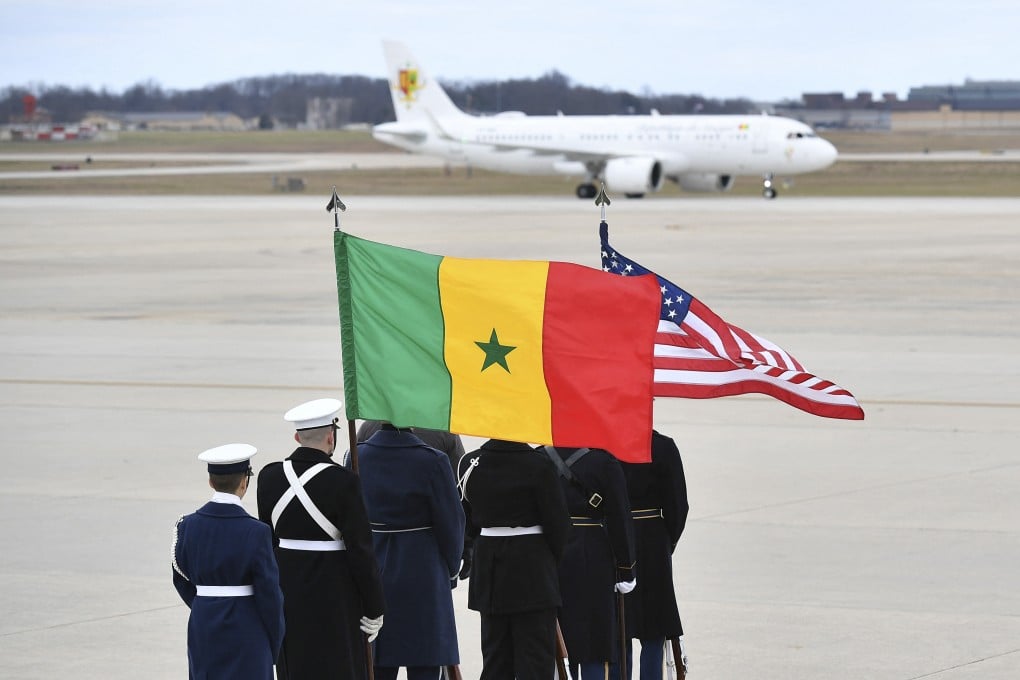Advertisement
Don’t make Africa a China-US battleground, Beijing says in countdown to Washington summit
- The United States is hosting dozens of leaders from the continent this week – the first of its kind in 8 years
- American concern about China’s activities in Africa is rising amid claims and denials of debt-trap diplomacy
Reading Time:2 minutes
Why you can trust SCMP
40

As Washington prepares to host dozens of African leaders this week, Beijing has underlined its opposition to turning the continent into a focus of China-US rivalry.
The second US-Africa Leaders Summit starts on Tuesday amid concerns in the United States that China sees Africa as an arena to advance its commercial and geopolitical interests and to weaken the US’ ties with African governments and peoples.
“We are glad to see that all sides of the international community are paying more attention to Africa, but we firmly oppose using Africa as an arena for great power rivalry and using African strategy as a tool to limit and attack other countries’ cooperation with Africa,” Chinese foreign ministry spokesman Wang Wenbin said on Tuesday.
Advertisement
Wang said China would form partnerships with African countries on the basis of mutual respect, equal treatment and sincere cooperation.
Wang was responding to a question about a report by South African think tank the Institute for Global Dialogue on China-US rivalry on the continent.
Advertisement
Advertisement
Select Voice
Select Speed
1.00x
